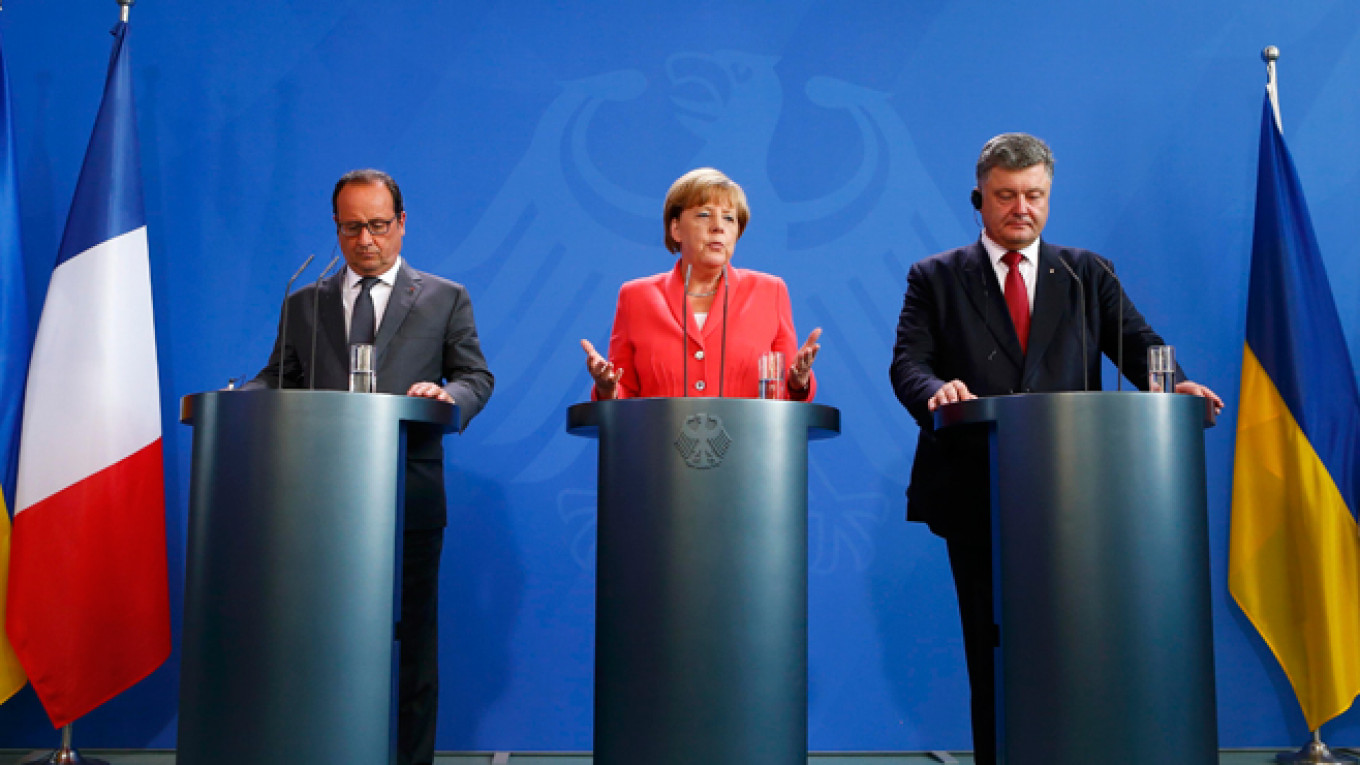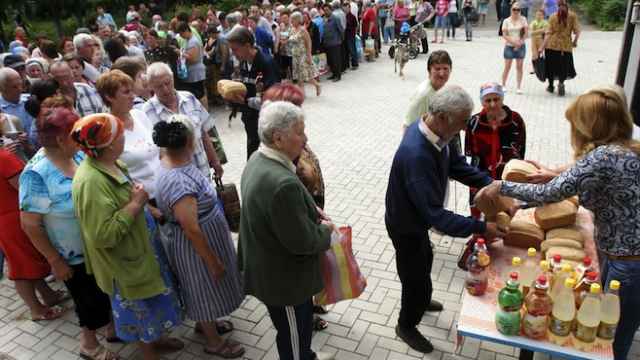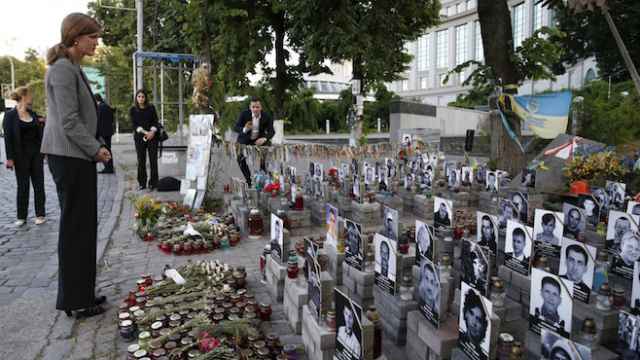The leaders of France, Germany and Russia backed a new ceasefire in eastern Ukraine in a three-way phone call on Saturday, but offered contrasting views of why February's peace deal is in trouble.
Daily clashes between the two forces killing civilians, Ukrainian soldiers and separatists, have undermined the deal struck in the Belarus capital Minsk. Both sides have blamed the other for the violations.
In separate statements, France's Francois Hollande and Germany's Angela Merkel said the three leaders backed efforts to reinstate an effective ceasefire, while a statement by Russia's President Vladimir Putin blamed Kiev for failing to implement key terms of the peace deal.
Ukraine and pro-Russian separatists agreed on Aug. 26 to strive for an end to all truce violations from next Tuesday, the OSCE and rebel representatives have said.
"There was agreement that the Minsk agreements remain the basis for an improvement of the situation in the Donbas region (eastern Ukraine)," the German statement said.
Hollande's office said the three leaders "strongly backed the call for a complete ceasefire from Sept. 1," and agreed it would be useful to hold a summit with Ukraine's president, Petro Poroshenko, in the coming weeks.
The two sides agreed in February to a ceasefire in eastern Ukraine parallel to a political process, including local elections and establishment of a special self-management status for separatist-minded regions.
In its account of the phone conversation, the Kremlin said Putin had expressed concerns over Kiev's actions in eastern Ukraine, which he said included shelling the population and an economic blockade.
Putin also reiterated Russia's calls for direct dialogue between Kiev and rebel representatives and constitutional reforms agreed with the rebel regions.
"The Russian president emphasized the lack of an alternative to political regulation of the conflict on the basis of full realization of the Minsk agreements," the statement said.
The German statement said the Western leaders had voiced concerns about plans by the rebel regions to hold elections outside the framework of Ukrainian law.
Rebel leaders have vowed to press ahead with the local elections on Oct. 18 and Nov. 1, a move fiercely criticized by Kiev.
A Message from The Moscow Times:
Dear readers,
We are facing unprecedented challenges. Russia's Prosecutor General's Office has designated The Moscow Times as an "undesirable" organization, criminalizing our work and putting our staff at risk of prosecution. This follows our earlier unjust labeling as a "foreign agent."
These actions are direct attempts to silence independent journalism in Russia. The authorities claim our work "discredits the decisions of the Russian leadership." We see things differently: we strive to provide accurate, unbiased reporting on Russia.
We, the journalists of The Moscow Times, refuse to be silenced. But to continue our work, we need your help.
Your support, no matter how small, makes a world of difference. If you can, please support us monthly starting from just $2. It's quick to set up, and every contribution makes a significant impact.
By supporting The Moscow Times, you're defending open, independent journalism in the face of repression. Thank you for standing with us.
Remind me later.






